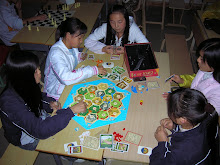T comma IBE period period T seems to be winning the hearts of the masses (the six people who have thus far submitted votes in the poll). A note about how to accomplish this task is in order, because it's not exactly like traveling to California (or to Thailand, Vietnam, etc. for that matter). In fact, I cannot even write the word as it is.
There are new restrictions on travel to this place, and I am rather unfamiliar with the mountains of paperwork required to visit. This is where guanxi comes in.
I could go into a brief history of the etymology of the word guanxi, but I'd rather just say, "I'll scratch your back, you scratch mine" or, as in zoology, "you remove the parasites from my body, I'll remove them from yours." In any case, the difference between the 'guanxi' in America and China is the overt quality it has here. We all know about the idea of guanxi, and we have all used guanxi throughout our lives, but we don't really talk about it. It's generally the principal of reciprocity. We feel an obligation to repay any favors people do for us. In China there seems to be more expectation for this to be carried out. For example, an expensive gift is generally a sign that the gift-giver wants a favor in the future.
Maintaining relationships and "building guanxi" is key to increasing one's success in China. People understand this in the business world, but generally, foreign teachers do not realize its full potential. This all may seem a little superficial, I'm sure, but I prefer to consider it a unique feature of this culture.
Recently I went to Anshun's customs and passport office to have my Visa renewed for 1 year. During this trip I caught a glimpse of guanxi in action. As we were leaving, one of our school officials spoke with a passport official and arranged for them to see one of our classes. In fact, I had 8 passport officials in my class last Friday. During our class break I helped them with basic phrases such as, "May I see your passport please?" and "Have you come to China for business or travel?" This project, still young, may turn into a language-learning CD of more useful English phrases for passport officials. After class I found myself at a banquet hosted by the passport officials. One of our school staff members told me that I could talk to these people if I ever wanted to travel anywhere. Hmmm... I thought.
Now I need to make a language-learning CD.
10.15.2007
Subscribe to:
Post Comments (Atom)








No comments:
Post a Comment